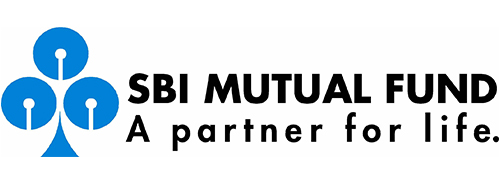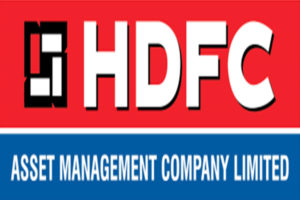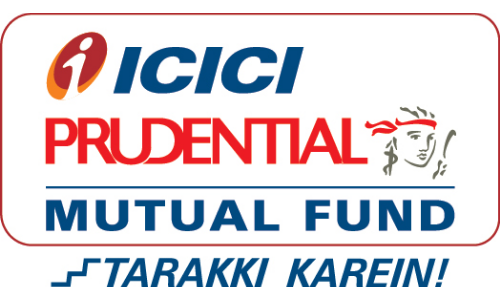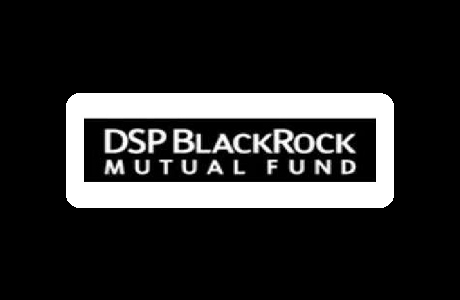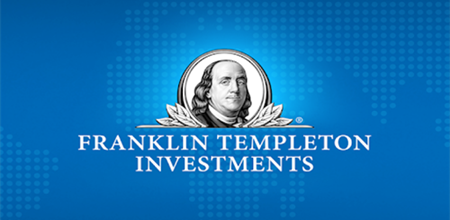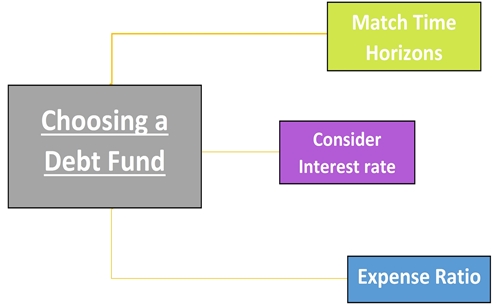Debt Mutual Fund Inflows Hit ₹2.19 Trillion in April — Highest in Two Decades
In April 2025, India's mutual fund Industry witnessed a historic shift as investors poured a record ₹2.19 trillion into debt Mutual Funds—marking the highest monthly inflow since January 2005. The sharp reversal from March’s net outflows of ₹2.02 trillion highlights a clear investor pivot towards safer, fixed-Income instruments amid heightened Market uncertainty.
This surge signals more than just a seasonal allocation pattern—it reflects a strategic move by both individual and institutional investors to reduce risk and preserve Capital while positioning themselves for potential future opportunities.
Why Did Investors Turn to Debt Mutual Funds in April 2025?
Several key factors drove this massive inflow:
1. Market Volatility and Geopolitical Tensions
The equity markets in April were plagued by uncertainties stemming from geopolitical tensions—particularly the India-Pakistan conflict and concerns over global trade instability. These factors led investors to de-risk their portfolios by moving capital from equities to fixed-income products.
2. Start of a New Financial Year
April marks the beginning of the financial year in India. Corporates and High net-worth Individuals (HNIs) often rebalance their portfolios during this time. With surplus cash on hand post-March disbursements, many parked idle funds in short-duration debt funds for tactical deployment.
3. Favourable Interest Rate Environment
Stable monetary policy and ample liquidity in the Financial System created an ideal environment for fixed-income investments, especially short-duration and Liquid Funds, which offer relatively better returns with low interest-rate sensitivity.
Talk to our investment specialist
📊 Where Did the Money Flow?
According to the Association of Mutual Funds in India (AMFI), the distribution of debt mutual fund inflows was broad-based, with 12 of 16 categories reporting net inflows. Here’s how the allocation looked:
| Debt fund Category | Net Inflows (₹ Crore) |
|---|---|
| Liquid Funds | ₹1,18,656 |
| Money market funds | ₹31,507 |
| Ultra Short Duration Funds | ₹26,733 |
| Overnight Funds | ₹23,900 |
| Low Duration Funds | ₹9,370 |
Liquid and liquid-plus strategies were the top choices as they provide easy liquidity and short-term capital safety.
What About Equity Mutual Funds?
Equity mutual fund inflows slowed to ₹24,269 crore in April, marking a 3.2% decline month-on-month and continuing a five-month downward trend. This dip highlights the growing caution among equity investors during uncertain times.
Top Equity Categories by Net Inflows:
- Flexi-cap Funds: ₹5,541 crore
- Small cap funds: ₹3,999 crore
- mid cap funds: ₹3,313 crore
While SIP contributions hit a record ₹26,632 crore, indicating sustained retail participation, the decline in lump-sum equity investments reflects investor wariness.
🔝 Best-Performing Debt Mutual Funds (Short Duration/Credit Risk)
If you’re seeking better returns than traditional FDs, some short-duration debt funds have posted impressive gains:
| Fund Name | 6-Month Return | 1-Year Return |
|---|---|---|
| DSP Credit Risk Fund - Direct Plan | 17.87% | 23.09% |
| HSBC Credit Risk Fund - Direct Plan | 17.44% | 22.41% |
| Aditya Birla Sun Life Credit Risk Fund | Competitive | Competitive |
| Aditya Birla Sun Life Medium term plan | Competitive | Competitive |
Note: These funds may carry higher credit risk. Always review Portfolio composition, liquidity metrics, and rating profiles before Investing.
Growth in AUM and Industry Outlook
Thanks to April’s inflows, the mutual fund industry's total average assets under management (AUM) rose 4.2% to ₹69.5 lakh crore, up from ₹66.7 lakh crore in March. This growth was primarily driven by increased allocations to debt mutual funds.
Looking ahead, experts suggest that inflows may continue into short-end debt and arbitrage funds until market sentiment improves. However, once geopolitical and trade tensions ease, a reallocation to equity schemes is likely.
Expert Insight: What Should Investors Do?
If you’re sitting on surplus cash or waiting for the right market entry point, short-term debt mutual funds are a viable option. Here's how to decide:
| Scenario | Recommended Strategy |
|---|---|
| Need liquidity + capital safety | Liquid or Overnight Funds |
| 3–6 month investment horizon | Ultra Short Duration or Low Duration Funds |
| Moderate risk appetite + yield | Credit Risk Funds (after due diligence) |
Best Debt Funds in India 2025
Fund NAV Net Assets (Cr) 3 MO (%) 6 MO (%) 1 YR (%) 3 YR (%) 2024 (%) Debt Yield (YTM) Mod. Duration Eff. Maturity Axis Credit Risk Fund Growth ₹21.8222
↑ 0.00 ₹366 1.8 4.7 8.5 7.8 8 7.93% 2Y 3M 18D 2Y 9M 4D PGIM India Credit Risk Fund Growth ₹15.5876
↑ 0.00 ₹39 0.6 4.4 8.4 3 5.01% 6M 14D 7M 2D UTI Banking & PSU Debt Fund Growth ₹22.2877
↑ 0.01 ₹813 1.4 4.4 8 7.6 7.6 6.61% 1Y 8M 12D 1Y 11M 8D Aditya Birla Sun Life Savings Fund Growth ₹557.171
↑ 0.08 ₹21,521 1.6 3.9 7.8 7.5 7.9 6.76% 5M 8D 6M 11D Aditya Birla Sun Life Money Manager Fund Growth ₹376.201
↑ 0.05 ₹27,665 1.5 3.9 7.7 7.6 7.8 6.24% 5M 12D 5M 12D HDFC Corporate Bond Fund Growth ₹32.9554
↑ 0.01 ₹35,700 1 3.8 7.5 7.8 8.6 7.06% 4Y 2M 1D 4Y 4M 28D ICICI Prudential Long Term Plan Growth ₹37.3832
↑ 0.01 ₹14,905 1 3.5 7.5 7.9 8.2 7.64% 4Y 9M 4D 12Y 7M 10D HDFC Banking and PSU Debt Fund Growth ₹23.3011
↑ 0.01 ₹5,890 1 3.9 7.5 7.4 7.9 6.94% 3Y 5M 5D 4Y 11M 19D Aditya Birla Sun Life Corporate Bond Fund Growth ₹114.267
↑ 0.04 ₹28,109 0.9 3.7 7.5 7.9 8.5 7.21% 4Y 8M 8D 7Y 3M Indiabulls Liquid Fund Growth ₹2,560.13
↑ 0.87 ₹303 1.4 3.1 6.9 6.9 7.4 5.88% 1M 3D 1M 3D Note: Returns up to 1 year are on absolute basis & more than 1 year are on CAGR basis. as on 26 Sep 25 Research Highlights & Commentary of 10 Funds showcased
Commentary Axis Credit Risk Fund PGIM India Credit Risk Fund UTI Banking & PSU Debt Fund Aditya Birla Sun Life Savings Fund Aditya Birla Sun Life Money Manager Fund HDFC Corporate Bond Fund ICICI Prudential Long Term Plan HDFC Banking and PSU Debt Fund Aditya Birla Sun Life Corporate Bond Fund Indiabulls Liquid Fund Point 1 Bottom quartile AUM (₹366 Cr). Bottom quartile AUM (₹39 Cr). Lower mid AUM (₹813 Cr). Upper mid AUM (₹21,521 Cr). Upper mid AUM (₹27,665 Cr). Highest AUM (₹35,700 Cr). Upper mid AUM (₹14,905 Cr). Lower mid AUM (₹5,890 Cr). Top quartile AUM (₹28,109 Cr). Bottom quartile AUM (₹303 Cr). Point 2 Established history (11+ yrs). Established history (11+ yrs). Established history (11+ yrs). Established history (22+ yrs). Established history (19+ yrs). Established history (15+ yrs). Established history (15+ yrs). Established history (11+ yrs). Oldest track record among peers (28 yrs). Established history (13+ yrs). Point 3 Top rated. Rating: 5★ (top quartile). Rating: 5★ (upper mid). Rating: 5★ (upper mid). Rating: 5★ (upper mid). Rating: 5★ (lower mid). Rating: 5★ (lower mid). Rating: 5★ (bottom quartile). Rating: 5★ (bottom quartile). Rating: 5★ (bottom quartile). Point 4 Risk profile: Moderate. Risk profile: Moderate. Risk profile: Moderate. Risk profile: Moderately Low. Risk profile: Low. Risk profile: Moderately Low. Risk profile: Moderate. Risk profile: Moderately Low. Risk profile: Moderately Low. Risk profile: Low. Point 5 1Y return: 8.46% (top quartile). 1Y return: 8.43% (top quartile). 1Y return: 7.97% (upper mid). 1Y return: 7.85% (upper mid). 1Y return: 7.75% (upper mid). 1Y return: 7.54% (lower mid). 1Y return: 7.52% (lower mid). 1Y return: 7.49% (bottom quartile). 1Y return: 7.47% (bottom quartile). 1Y return: 6.86% (bottom quartile). Point 6 1M return: 0.79% (upper mid). 1M return: 0.27% (bottom quartile). 1M return: 0.58% (lower mid). 1M return: 0.49% (lower mid). 1M return: 0.46% (bottom quartile). 1M return: 0.75% (upper mid). 1M return: 1.05% (top quartile). 1M return: 0.63% (upper mid). 1M return: 0.84% (top quartile). 1M return: 0.46% (bottom quartile). Point 7 Sharpe: 2.16 (upper mid). Sharpe: 1.73 (upper mid). Sharpe: 1.46 (lower mid). Sharpe: 3.66 (top quartile). Sharpe: 3.32 (upper mid). Sharpe: 0.68 (bottom quartile). Sharpe: 0.47 (bottom quartile). Sharpe: 0.73 (lower mid). Sharpe: 0.66 (bottom quartile). Sharpe: 3.54 (top quartile). Point 8 Information ratio: 0.00 (top quartile). Information ratio: 0.00 (top quartile). Information ratio: 0.00 (upper mid). Information ratio: 0.00 (upper mid). Information ratio: 0.00 (upper mid). Information ratio: 0.00 (lower mid). Information ratio: 0.00 (lower mid). Information ratio: 0.00 (bottom quartile). Information ratio: 0.00 (bottom quartile). Information ratio: -1.18 (bottom quartile). Point 9 Yield to maturity (debt): 7.93% (top quartile). Yield to maturity (debt): 5.01% (bottom quartile). Yield to maturity (debt): 6.61% (lower mid). Yield to maturity (debt): 6.76% (lower mid). Yield to maturity (debt): 6.24% (bottom quartile). Yield to maturity (debt): 7.06% (upper mid). Yield to maturity (debt): 7.64% (top quartile). Yield to maturity (debt): 6.94% (upper mid). Yield to maturity (debt): 7.21% (upper mid). Yield to maturity (debt): 5.88% (bottom quartile). Point 10 Modified duration: 2.30 yrs (lower mid). Modified duration: 0.54 yrs (upper mid). Modified duration: 1.70 yrs (upper mid). Modified duration: 0.44 yrs (top quartile). Modified duration: 0.45 yrs (upper mid). Modified duration: 4.17 yrs (bottom quartile). Modified duration: 4.76 yrs (bottom quartile). Modified duration: 3.43 yrs (lower mid). Modified duration: 4.69 yrs (bottom quartile). Modified duration: 0.09 yrs (top quartile). Axis Credit Risk Fund
PGIM India Credit Risk Fund
UTI Banking & PSU Debt Fund
Aditya Birla Sun Life Savings Fund
Aditya Birla Sun Life Money Manager Fund
HDFC Corporate Bond Fund
ICICI Prudential Long Term Plan
HDFC Banking and PSU Debt Fund
Aditya Birla Sun Life Corporate Bond Fund
Indiabulls Liquid Fund
Final Thoughts
April 2025’s historic debt fund inflows reflect a tactical shift toward stability amid market disruption. Investors are playing it safe—focusing on liquidity, capital preservation, and short-term yield opportunities. But remember, market cycles evolve quickly. While debt funds are great for parking capital during uncertain times, long-term wealth creation still lies in diversified portfolios—including equities. As always, align your investments with your risk profile, goals, and horizon. And don’t forget to revisit your Asset Allocation periodically—especially during times of rapid change like now.
All efforts have been made to ensure the information provided here is accurate. However, no guarantees are made regarding correctness of data. Please verify with scheme information document before making any investment.
